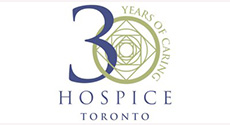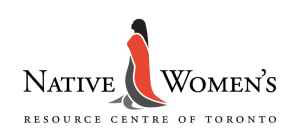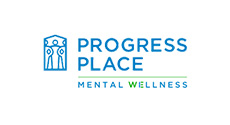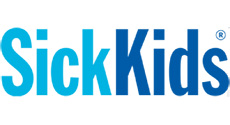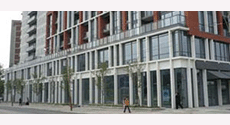The Corner
A Community and Service Hub for Residents.
Who we are
In May 2011, the St. James Town Community Corner at 200 Wellesley opened its doors. The Corner is a fully accessible set of offices, meeting spaces, program rooms and community kitchen dedicated to local initiatives and services to benefit the neighbourhood. This collaboration between residents, public and private funders and service providers is a unique St. James Town community success story.
Operating out of the Toronto Community Housing (TCHC) building, at 200 Wellesley St. E., the facility was formed by a local steering committee after consulting with the community, and it is the result of more than five years of effort by local resident volunteers in partnership with a number of service providers. All are committed to improve access for St. James Town residents to services, supports and opportunities to meet, plan and build a strong, healthy neighbourhood.
Racism is a public health crisis
Martin Luther King Jr.
St. James Town Community Corner (The Corner) and the St. James Town Service Providers’ Network (SJTSPN) stand in solidarity with the black communities and their leaders and are committed to critical engagement for the advancement of equitable public health at frontline, community and systemic levels.
Services

Primary Health
Dealing with a health issues? Need help with health and social services?

Diabetic Clinic
Are you diabetic? Do you need guidance or diet and nutrition?

Counseling
Do you feel down, sad or lonely and need to talk to someone?

Case Management
Personalized support and guidance through life’s ups and downs.

Housing Support
Are you looking for affordable homes or shelter homes?

Employment Support
Are you looking for a job, need career advice or want help with your resume?

Settlement Support
Are you a newcomer to Canada and looking to connect with services and the community?

Senior Support
Are you 55+ years old and looking for support and care?
Statistics (2022)
The Corner @ 240
St. James Town is a vibrant and growing community, and on the 9th of August, 2018 the neigbourhood launched the City’s first Share and Reuse Hub, the 240 Share & Reuse Space. Located at 240 Wellesley, the Share & Reuse Space aims to support a culture of reusing, sharing, repairing and repurposing items to prolong their life.
Strategic Plan 2022 – 2025

Promote Green Communities Initiatives
Promote Green Communities Initiatives

Improve Community Health Outcomes
Improve Community Health Outcomes

Promote Community Wellbeing
Promote Community Wellbeing

Champion Economic Opportunity
Champion Economic Opportunity
Partners
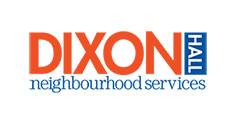 Employment, housing and Senior Services.
Employment, housing and Senior Services.
Dixon Hall Neighborhood Services began as a soup kitchen in 1929, and since then has been steadily increasing and strengthening a diverse range of integrated services for residents of east downtown Toronto. Their main goal is to create lasting solutions to end poverty, social injustices and social isolation in Toronto.
WebsiteHousing, Health Care
Fred Victor is a social service charitable organization established in 1894 that fosters long-lasting and effective changes in the lives of homeless and low-income people living across Toronto. Their programs and services are mainly focused on providing housing and shelters for people who live in extreme poverty, health care services and various training programs for those seeking sustainable jobs.
Palliative Care
Since 1988, Hospice Toronto has served 11,811 clients. By providing and advancing compassionate care and leadership in the volunteer-based, home hospice community, Hospice Toronto has become a recognized leader in providing high-quality, hospice care and support for people through all phases of their life-threatening illness, and their loved ones, at no charge.
Services for Indigenous Women
A community-based organization dedicated to provide resources and support to urban Indigenous women and their families. NWRCT delivers culturally relevant programs and services that empower and build the collective capacity and self-sufficiency of Indigenous women. The NWRCT is founded in 1985 and it is a registered charity funded by government programs as well as public and private donations.
Mental Health & Wellness
Progress Place is a mental health and wellness organization which first opened as a part-time drop-in centre in North York (1976). Since 1983, by launching a supported housing program, as well as a transitional employment program it has been providing part-time supported employment to people with severe and persistent mental illness such as Schizophrenia, Bipolar, Depression and Anxiety.
Toronto Addiction Rehab
Renascent is a leading addiction treatment centre offering drug, alcohol, and food addiction rehab programs and services in Toronto and the GTA. Seeking drug or alcohol treatment for yourself or a loved one can be one of the most difficult and important decisions of your life. In Canada, there are no regulations or overseeing governing bodies ensuring treatment centres are operating appropriately.
Lead and Co-chair of the Health Access Leadership table
A non-profit community organization founded in 2002, providing accessible and effective primary health care to the people who may have been under-served by conventional health in southeast Toronto such as homeless/under-housed, LGBTQ and newcomers. They offer counseling, health promotion, outreach, advocacy, education, research and development, peer support groups and arts-based programming.
Pediatrics & Health Care
The SickKids Centre for Community Mental Health (SickKids CCMH), formerly known as The Hincks-Dellcrest Centre, founded in 1998 in Toronto, is a community of the University of Toronto’s Faculty of Medicine (Department of Psychiatry) and Factor-Inwentash Faculty of Social Work. It helps 6,000 children and families each year through a combination of prevention, treatment, research and education activities.
Health Centre
Family health teams are primary health care organizations, funded by the Ontario Ministry of Health and Long-Term Care, that include a team of family physicians, nurse practitioners, registered nurses, social workers, dietitians, and other professionals who work together to provide primary health care for their community. They ensure that people receive the care they need, as each team is set-up based on local health and community needs.


